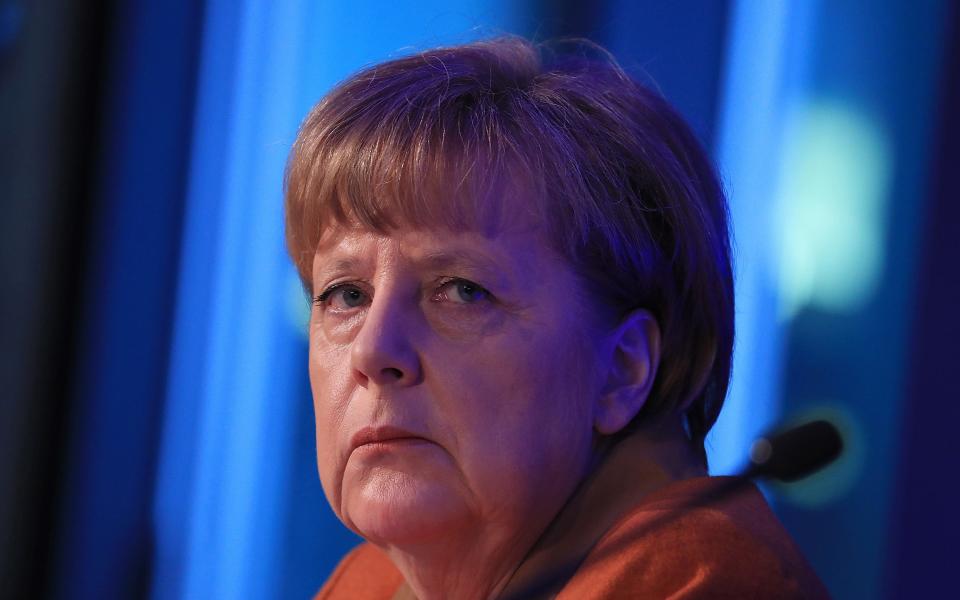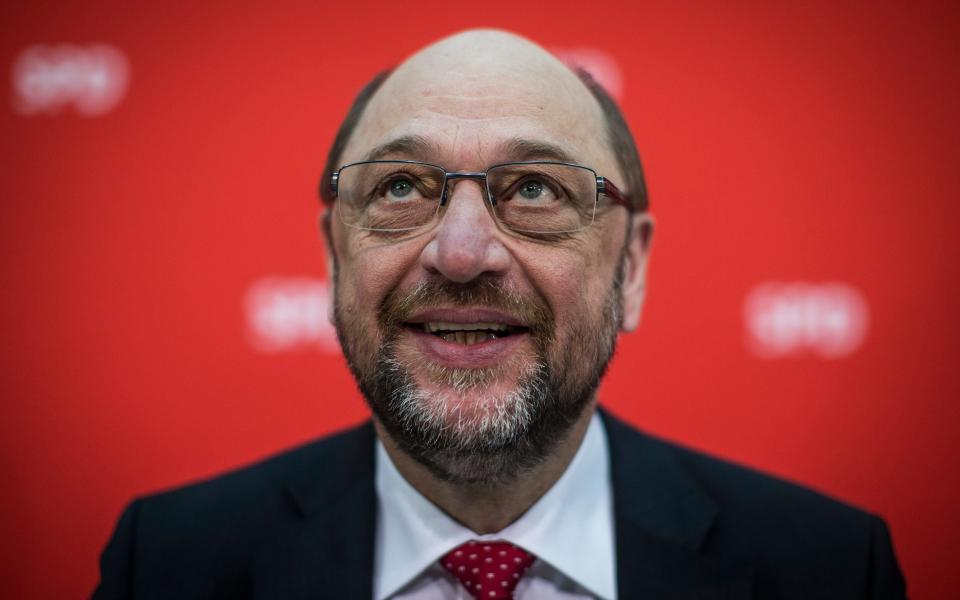German election boost for Angela Merkel as Christian Democrats hold on to power in key state

Angela Merkel on Sunday won a convincing victory in regional elections seen as a key test of support ahead of Germany’s national vote later this year, according to exit polls.
Martin Schulz, widely regarded as the strongest rival she has faced in over a decade, suffered an embarrassing defeat as his party failed to mount a challenger and saw its share of the vote fall.
If initial projections prove accurate, the result could take the wind out of a campaign that has seen Mr Schulz ahead of Mrs Merkel in the national opinion polls and openly talked of as Germany’s next chancellor.
Mrs Merkel’s Christian Democrats (CDU) were predicted to win a commanding 41 per cent of the vote in elections to the regional parliament in the western state of Saarland.
The result was a resounding endorsement for the Mrs Merkel, who not only held onto control of the state but made dramatic gains of more than 5 per cent even as her political demise was being widely predicted.
Mr Schulz’s Social Democrats (SPD), who were expected to mount a serious challenge, came a disappointing second with 30 per cent, a fall of 0.5 per cent.
The Left Party were in third place, with 13 per cent, while the far-Right Alternative for Germany (AfD) party just managed to pass the 5 per cent threshold to enter the state parliament.
“This is of course a really great start to the election year of 2017,” Michael Grosse-Brömer, the CDU’s chief whip, told German television.
“This election shows that governing calmly impresses people in turbulent times.”

The SPD went into the Saarland election neck-and-neck with the CDU in the polls on a wave of support for Mr Schulz, the former European parliament president and staunch Brexit opponent who took over as party leader earlier this year.
But it was the first real test Mr Schulz has faced at the ballot box and the results threaten to burst the bubble of “Schulz mania” that has seen him endorsed as party leader with 100 per cent support and nicknamed “Sankt Martin”.
Mrs Merkel’s strategy of not taking on Mr Schulz directly but protraying herself as a safe pair of hands appeared to have paid off.
“This time every vote counts,” she said, imploring voters to “avoid experiments” and stick to the CDU’s “path of success in an unusually impassioned campaign speech that appeared to show she is feeling the strain ahead of September’s national elections.
The result was also an endorsement for Annegret Kramp-Karrenbauer, the local CDU leader dubbed “mini-Merkel” by the German press.
“There will be no government in Saarland without the SPD,” Ralf Stegner, a senior ally of Mr Schulz said, trying to put a brave face on the result.

Under Germany’s proportional representation system, a “grand coalition” led by the CDU with the SPD as junior partner is likely to remain in power in Saarland.
But the result was a serious blow for Mr Schulz, who had hoped to use the election in the tiny state to prove that the SPD could lead an alternative coalition of its own with the Left Party and the Greens.
The same alliance, known in Germany as a “red-red-green coalition” is his best route to power in national elections this September.
But in Saarland the Green Party failed to clear the 5 per cent threshold to win seats in parliament and were eliminated, while the SPD and the Left Party between them could not muster enough votes to challenge the CDU for control.
The results were also disappointing for the far-Right AfD, which spent much of last year seen as the main threat to Mrs Merkel.
Hit by infighting and controversy, the party has seen its support plummet in recent weeks and it only just scraped into the Saarland parliament.

 Yahoo News
Yahoo News 
